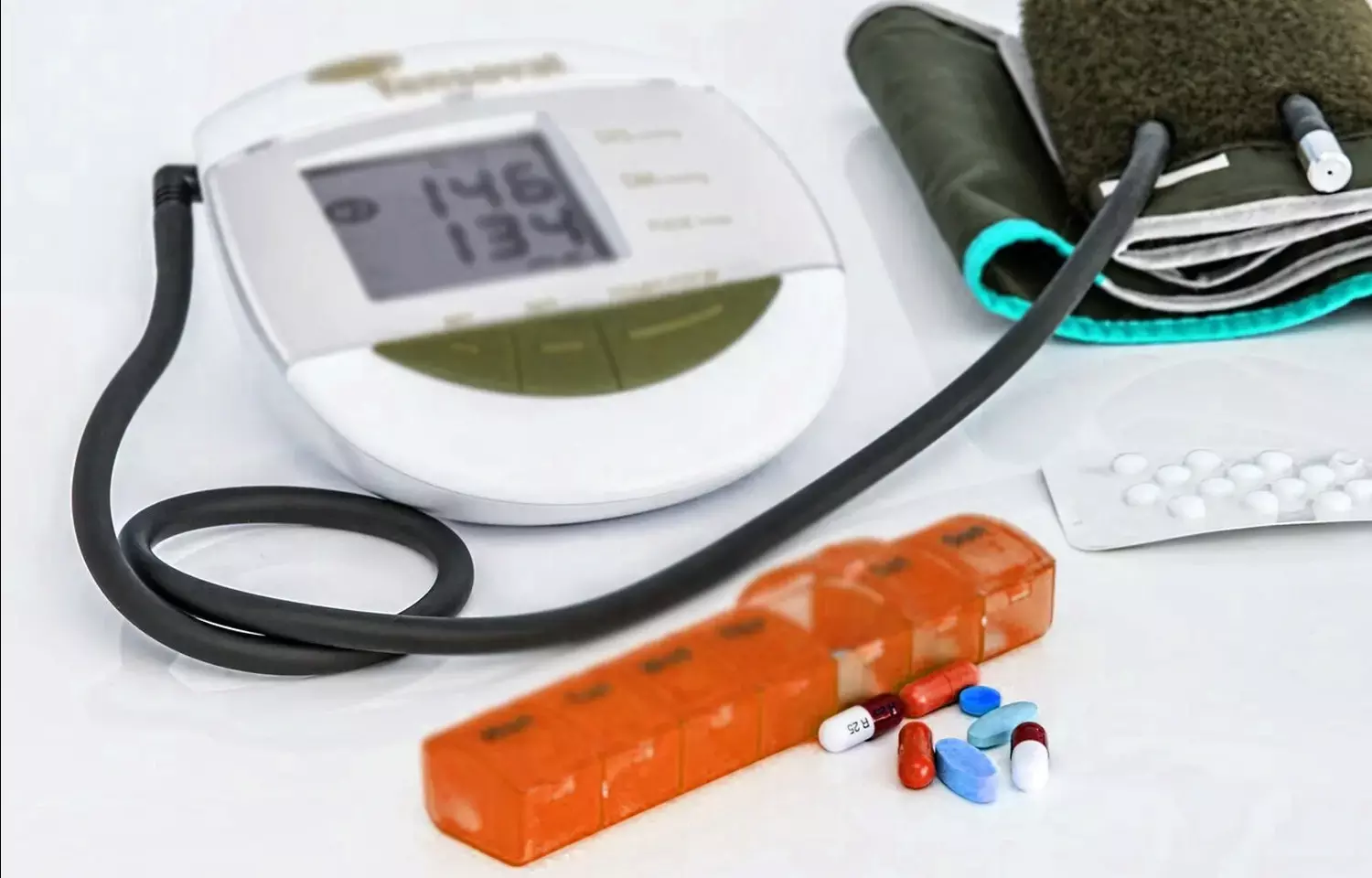- Home
- Medical news & Guidelines
- Anesthesiology
- Cardiology and CTVS
- Critical Care
- Dentistry
- Dermatology
- Diabetes and Endocrinology
- ENT
- Gastroenterology
- Medicine
- Nephrology
- Neurology
- Obstretics-Gynaecology
- Oncology
- Ophthalmology
- Orthopaedics
- Pediatrics-Neonatology
- Psychiatry
- Pulmonology
- Radiology
- Surgery
- Urology
- Laboratory Medicine
- Diet
- Nursing
- Paramedical
- Physiotherapy
- Health news
- Fact Check
- Bone Health Fact Check
- Brain Health Fact Check
- Cancer Related Fact Check
- Child Care Fact Check
- Dental and oral health fact check
- Diabetes and metabolic health fact check
- Diet and Nutrition Fact Check
- Eye and ENT Care Fact Check
- Fitness fact check
- Gut health fact check
- Heart health fact check
- Kidney health fact check
- Medical education fact check
- Men's health fact check
- Respiratory fact check
- Skin and hair care fact check
- Vaccine and Immunization fact check
- Women's health fact check
- AYUSH
- State News
- Andaman and Nicobar Islands
- Andhra Pradesh
- Arunachal Pradesh
- Assam
- Bihar
- Chandigarh
- Chattisgarh
- Dadra and Nagar Haveli
- Daman and Diu
- Delhi
- Goa
- Gujarat
- Haryana
- Himachal Pradesh
- Jammu & Kashmir
- Jharkhand
- Karnataka
- Kerala
- Ladakh
- Lakshadweep
- Madhya Pradesh
- Maharashtra
- Manipur
- Meghalaya
- Mizoram
- Nagaland
- Odisha
- Puducherry
- Punjab
- Rajasthan
- Sikkim
- Tamil Nadu
- Telangana
- Tripura
- Uttar Pradesh
- Uttrakhand
- West Bengal
- Medical Education
- Industry
Lipid Management in Patients with Endocrine Disorders- Guidelines by Endocrine Society

WASHINGTON - Endocrine Society has released new Clinical Practice Guideline for Lipid Management in Patients with Endocrine Disorders. The clear message of new guidelines is that all adults with endocrine disorders should be tested for high cholesterol and triglycerides to evaluate their risk of heart attack or stroke.
The guideline, titled "Lipid Management in Patients with Endocrine Disorders: An Endocrine Society Clinical Practice Guideline," was published online?and will appear in the December 2020 print issue of The Journal of Clinical Endocrinology & Metabolism (JCEM), a publication of the Endocrine Society. This guideline provides an approach to assessing and treating high cholesterol and triglycerides in patients with endocrine diseases like hypothyroidism, menopause and Cushing's syndrome.
Apart from diabetes, many endocrine diseases are not mentioned in cholesterol management guidelines. Our guideline addresses this gap in information and has three main objectives: describe lipid abnormalities and cardiovascular risk in patients with endocrine diseases; assess whether treatment of the underlying endocrine disorder improves the lipid profile and/or lowers the risk of cardiovascular disease; and discuss the evidence for using cholesterol and triglyceride lowering medications, in addition to diet and exercise, in patients with these endocrine diseases.
"This guideline is the first of its kind. We hope that it will make a lipid panel and cardiovascular risk evaluation routine in adults with endocrine diseases and cause a greater focus on therapies to reduce heart disease and stroke," said Connie Newman, M.D., of the New York University Grossman School of Medicine in New York, N.Y. Newman is the chair of the committee that wrote the guideline.
Main Recommendations from the guideline include:
Other members of the Endocrine Society writing committee that developed this guideline include: Michael Blaha of the Johns Hopkins Ciccarone Center for the Prevention of Heart Disease in Baltimore, Md.; Jeffrey Boord of the Parkview Health System in Fort Wayne, Ind.; Bertrand Cariou of the Nantes University Hospital in Nantes, France; Alan Chait of the University of Washington in Seattle, Wash.; Henry Fein of the Sinai Hospital in Baltimore, Md.; Henry Ginsberg of the Columbia University in New York, N.Y.; Ira Goldberg of the New York University Grossman School of Medicine; M. Hassan Murad of the Mayo Clinic Evidence-based Practice Center in Rochester, Minn.; Savitha Subramanian of the University of Washington; and Lisa Tannock of the University of Kentucky in Lexington, Ky.
The Society established its?Clinical Practice Guideline Program?to provide endocrinologists and other clinicians with evidence-based recommendations in the diagnosis, treatment, and management of endocrine-related conditions. Each guideline is developed by a writing committee of topic-related experts in the field. Writing committees rely on evidence-based reviews of the literature in the development of guideline recommendations. The Endocrine Society does not solicit or accept corporate support for its guidelines. All Clinical Practice Guidelines are supported entirely by Society funds.
This Clinical Practice Guideline was co-sponsored by the European Society of Endocrinology.
Hina Zahid Joined Medical Dialogue in 2017 with a passion to work as a Reporter. She coordinates with various national and international journals and association and covers all the stories related to Medical guidelines, Medical Journals, rare medical surgeries as well as all the updates in the medical field. Email: editorial@medicaldialogues.in. Contact no. 011-43720751
Dr Kamal Kant Kohli-MBBS, DTCD- a chest specialist with more than 30 years of practice and a flair for writing clinical articles, Dr Kamal Kant Kohli joined Medical Dialogues as a Chief Editor of Medical News. Besides writing articles, as an editor, he proofreads and verifies all the medical content published on Medical Dialogues including those coming from journals, studies,medical conferences,guidelines etc. Email: drkohli@medicaldialogues.in. Contact no. 011-43720751


